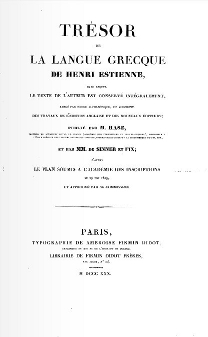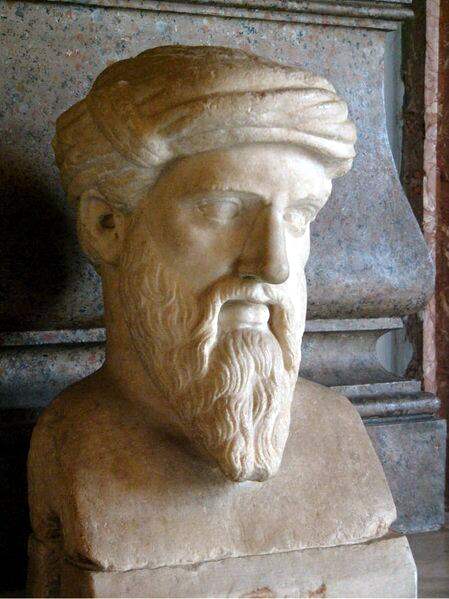|
On Virtue
''On Virtue'' (; ) is a Socratic dialogue attributed to Plato, but which is considered spurious. In the short dialogue, Socrates discusses with a friend questions about whether virtue can be taught.John Madison Cooper, D. S. Hutchinson, (1997), ''Plato, Complete works'', page 1694. Hackett Publishing. To answer this question, the author of the dialogue does little more than copy out a few passages from the ''Meno'' almost word for word. W. K. C. Guthrie, (1986), ''A history of Greek philosophy: The later Plato and the Academy'', page 398. Cambridge University Press References External links ''On Virtue''translated by George BurgesFree public domain audiobook version of ''On Virtue''translated by George Burges * . Collection includes On Virtue. George Burges George Burges (; 1786 – 11 January 1864) was an English classical scholar who published translations of the works of Euripides, Aeschylus, Sophocles, and Plato. Biography Burges was born in Bengal, India, and was prob ... [...More Info...] [...Related Items...] OR: [Wikipedia] [Google] [Baidu] |
Henri Estienne
Henri Estienne ( , ; 1528 or 15311598), also known as Henricus Stephanus ( ), was a French printer and classical scholar. He was the eldest son of Robert Estienne. He was instructed in Latin, Greek, and Hebrew by his father and would eventually take over the Estienne printing firm which his father owned in 1559 when his father died. His most well-known work was the ''Thesaurus graecae linguae'', which was printed in five volumes. The basis of Greek lexicology, no thesaurus would rival that of Estienne's for three hundred years. Among his many publications of Greek authors, his publications of Plato are the source of Stephanus pagination, which is still used to refer to Plato's works. Estienne was also responsible for the first printed Latin translation of the works of Sextus Empiricus in 1562, which scholars credit for the diffusion of Pyrrhonian skepticism in early modern Europe and its adoption by highly influential skeptical philosophers such as Michel de Montaigne. Estie ... [...More Info...] [...Related Items...] OR: [Wikipedia] [Google] [Baidu] |
Socratic Dialogue
Socratic dialogue () is a genre of literary prose developed in Greece at the turn of the fourth century BC. The earliest ones are preserved in the works of Plato and Xenophon and all involve Socrates as the protagonist. These dialogues, and subsequent ones in the genre, present a discussion of moral and philosophical problems between two or more individuals illustrating the application of the Socratic method. The dialogues may be either dramatic or narrative. While Socrates is often the main participant, his presence in the dialogue is not essential to the genre. Platonic dialogues Most of the Socratic dialogues referred to today are those of Plato. Platonic dialogues defined the literary genre subsequent philosophers used. Plato wrote approximately 35 dialogues, in most of which Socrates is the main character. The protagonist of each dialogue, both in Plato's and Xenophon's work, usually is Socrates who by means of a kind of interrogation tries to find out more about the other ... [...More Info...] [...Related Items...] OR: [Wikipedia] [Google] [Baidu] |
Plato
Plato ( ; Greek language, Greek: , ; born BC, died 348/347 BC) was an ancient Greek philosopher of the Classical Greece, Classical period who is considered a foundational thinker in Western philosophy and an innovator of the written dialogue and dialectic forms. He influenced all the major areas of theoretical philosophy and practical philosophy, and was the founder of the Platonic Academy, a philosophical school in History of Athens, Athens where Plato taught the doctrines that would later become known as Platonism. Plato's most famous contribution is the theory of forms, theory of forms (or ideas), which aims to solve what is now known as the problem of universals. He was influenced by the pre-Socratic thinkers Pythagoras, Heraclitus, and Parmenides, although much of what is known about them is derived from Plato himself. Along with his teacher Socrates, and his student Aristotle, Plato is a central figure in the history of Western philosophy. Plato's complete ... [...More Info...] [...Related Items...] OR: [Wikipedia] [Google] [Baidu] |
Socrates
Socrates (; ; – 399 BC) was a Ancient Greek philosophy, Greek philosopher from Classical Athens, Athens who is credited as the founder of Western philosophy and as among the first moral philosophers of the Ethics, ethical tradition of thought. An enigmatic figure, Socrates authored no texts and is known mainly through the posthumous accounts of classical writers, particularly his students Plato and Xenophon. These accounts are written as dialogues, in which Socrates and his interlocutors examine a subject in the style of question and answer; they gave rise to the Socratic dialogue literary genre. Contradictory accounts of Socrates make a reconstruction of his philosophy nearly impossible, a situation known as the Socratic problem. Socrates was a polarizing figure in Athenian society. In 399 BC, he was accused of Asebeia, impiety and corrupting the youth. After Trial of Socrates, a trial that lasted a day, he was sentenced to death. He spent his last day in prison ... [...More Info...] [...Related Items...] OR: [Wikipedia] [Google] [Baidu] |
Meno
''Meno'' (; , ''Ménōn'') is a Socratic dialogue written by Plato around 385 BC., but set at an earlier date around 402 BC. Meno begins the dialogue by asking Socrates whether virtue (in , '' aretē'') can be taught, acquired by practice, or comes by nature. In order to determine whether virtue is teachable or not, Socrates tells Meno that they first need to determine what virtue is. When the characters speak of virtue, or ''aretē'', they refer to virtue in general, rather than particular virtues, such as justice or temperance. The first part of the work showcases Socratic dialectical style; Meno, unable to adequately define virtue, is reduced to confusion or aporia. Socrates suggests that they seek an adequate definition for virtue together. In response, Meno suggests that it is impossible to seek what one does not know, because one will be unable to determine whether one has found it. Socrates challenges Meno's argument, often called "Meno's Paradox", "Learner's Parado ... [...More Info...] [...Related Items...] OR: [Wikipedia] [Google] [Baidu] |
George Burges
George Burges (; 1786 – 11 January 1864) was an English classical scholar who published translations of the works of Euripides, Aeschylus, Sophocles, and Plato. Biography Burges was born in Bengal, India, and was probably the son of Thomas Burges (d.1799) of Calcutta. He was educated at Charterhouse School and Trinity College, Cambridge, taking his B.A. degree in 1807 and obtaining one of the members' prizes both in 1808 and 1809 before becoming an M.A. in 1810. He stayed up at Cambridge and became a most successful coach and tutor. He had a great reputation as a Greek scholar, and was a somewhat acrimonious critic of rival scholars, especially Bishop Blomfield. Subsequently, he fell into embarrassed circumstances through injudicious speculation, and in 1841 a civil list pension of £100 per annum was bestowed upon him. He died at Ramsgate, on 11 January 1864. Burges was a man of great learning and industry, but too fond of introducing arbitrary emendations into the text of ... [...More Info...] [...Related Items...] OR: [Wikipedia] [Google] [Baidu] |
Dialogues Of Plato
Plato ( ; Greek: , ; born BC, died 348/347 BC) was an ancient Greek philosopher of the Classical period who is considered a foundational thinker in Western philosophy and an innovator of the written dialogue and dialectic forms. He influenced all the major areas of theoretical philosophy and practical philosophy, and was the founder of the Platonic Academy, a philosophical school in Athens where Plato taught the doctrines that would later become known as Platonism. Plato's most famous contribution is the theory of forms (or ideas), which aims to solve what is now known as the problem of universals. He was influenced by the pre-Socratic thinkers Pythagoras, Heraclitus, and Parmenides, although much of what is known about them is derived from Plato himself. Along with his teacher Socrates, and his student Aristotle, Plato is a central figure in the history of Western philosophy. Plato's complete works are believed to have survived for over 2,400 yearsunlike tha ... [...More Info...] [...Related Items...] OR: [Wikipedia] [Google] [Baidu] |
Virtue
A virtue () is a trait of excellence, including traits that may be morality, moral, social, or intellectual. The cultivation and refinement of virtue is held to be the "good of humanity" and thus is Value (ethics), valued as an Telos, end purpose of life or a foundational principle of being. In human practical ethics, a virtue is a disposition to choose actions that succeed in showing high moral standards: doing what is said to be right and avoiding what is wrong in a given field of endeavour, even when doing so may be unnecessary from a utilitarianism, utilitarian perspective. When someone takes pleasure in doing what is right, even when it is difficult or initially unpleasant, they can establish virtue as a habit. Such a person is said to be virtuous through having cultivated such a disposition. The opposite of virtue is vice. Other examples of this notion include the concept of Merit (Buddhism), merit in Asian traditions as well as (Chinese language, Chinese ). Etymology The ... [...More Info...] [...Related Items...] OR: [Wikipedia] [Google] [Baidu] |





